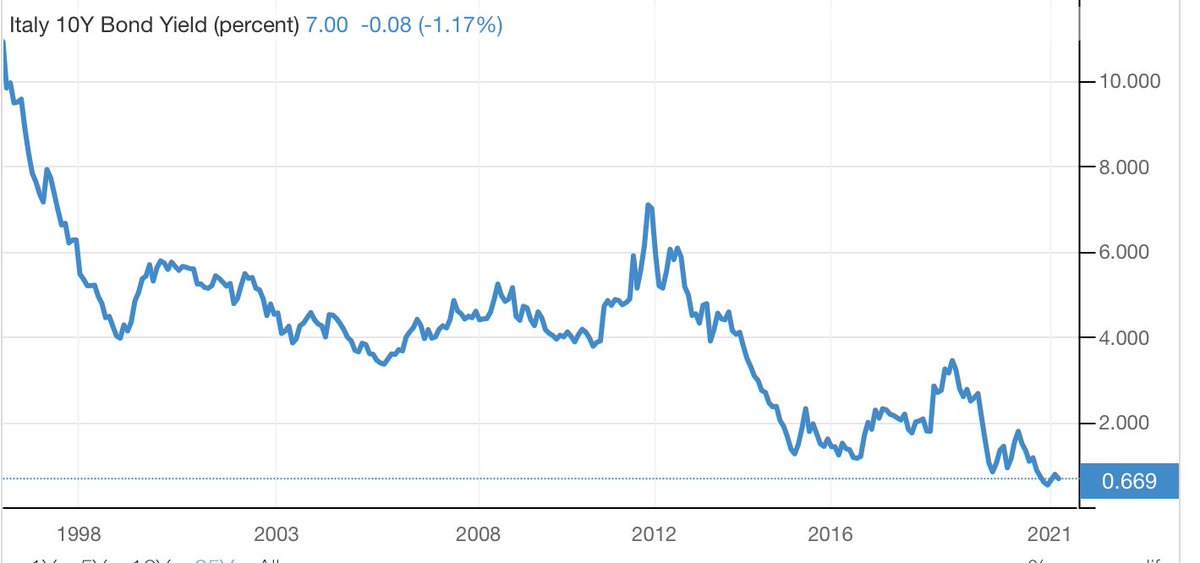
How to get URL link on X (Twitter) App


https://twitter.com/aaronbastani/status/1372579355797417993The point that the monetary operations behind fiscal policy aren’t important either practically or rhetorically is so easy to refute. Look at what happened to government bond yields in deficit countries in the Euro periphery post-crisis. The same basic pattern across the board





https://twitter.com/AnnPettifor/status/1372528333435588612

 Critiques of MMT often betray desperation. This one is a series of assertions that do not hold up.
Critiques of MMT often betray desperation. This one is a series of assertions that do not hold up.
https://twitter.com/davidlnoll/status/1361875319054077952Energy is an essential good, people will not survive long without it in these conditions, and in the real world (rather than the textbook world) people have unequal abilities to pay. So prices don’t allocate efficiently according to need, they allocate according to ability to pay
https://twitter.com/mattyglesias/status/1361112414188617729Saying that firms aren’t profit maximisers triggers a lot of people, but it’s true. Short term profit maximisation is not the goal of firms in oligopolistic industrial capitalism. The goal of firms is their continued reproduction.
https://twitter.com/perbylund/status/1353755750603124736We can expect minimum wage hikes to increase employment and wages because wage rises increase effective demand and employment is determined by effective demand, which also further influences wage growth.
https://twitter.com/nfergus/status/1353366552754573313You can make the case that QE has exacerbated inequality. But QE is a result of neglect of fiscal policy in terms of managing demand. Fiscal policy managing demand and targeting full employment is in no way the same as attempting to stimulate through cb asset purchases.
https://twitter.com/JuliusProbst/status/1349006355164749834The finer points matter. Summers etc argue that savings gluts from China create an excess of saving over investment that pushes equilibrium interest rates down.
https://twitter.com/TheStalwart/status/1319211622150307841If every agent has rational expectations, ie knows the true model of the economy, then effect of inflationary policies will be anticipated and thus real effects nullified (policy ineffectiveness proposition).

 Economists since the last crisis have been in denial about why their models fail. The problem is that their general equilibrium models don’t need money to work. In fact, money is added to these to serve as a friction. This is the total opposite of the role of money in reality
Economists since the last crisis have been in denial about why their models fail. The problem is that their general equilibrium models don’t need money to work. In fact, money is added to these to serve as a friction. This is the total opposite of the role of money in reality


https://twitter.com/PeoplesMomentum/status/1190583953872302086Even from the standpoint of innovation or productive investment, by far the most important determinant of investment is the state of aggregate demand, which redistributive policies would improve.
https://twitter.com/ericlonners/status/1184102388384317440On the topic of internal coherence, it was established long ago that the essential ingredients of the mainstream approach (that are purported to give it it's coherence) - microfoundations and the aggregate production function - are not coherent at all. Yet they persist.

https://twitter.com/paulkrugman/status/1100367260374482945Bruenig doesn't really want to get into an academic debate (what he terms word-games) and instead says that for all practical purposes MMT is just a restatement of functional finance. Okay, but even functional finance has a lot to teach the sound finance Marxists & neoclassicals.

https://twitter.com/LHSummers/status/1164491314337079296In the same decade that the microfoundations craze (the idea that macro relationships had to be based on optimising behaviour of microeconomic agents) took off, a series of results were published that showed you couldn't derive a stable, unique equilibrium from micro behaviour

 Apparently even Nobel Prize winners don't recognise this simple fact. As GDP drops the budget deficit is going to increase (or surplus decrease) as tax returns are lower (these are themselves a function of income) and unemployment benefits increase.
Apparently even Nobel Prize winners don't recognise this simple fact. As GDP drops the budget deficit is going to increase (or surplus decrease) as tax returns are lower (these are themselves a function of income) and unemployment benefits increase.